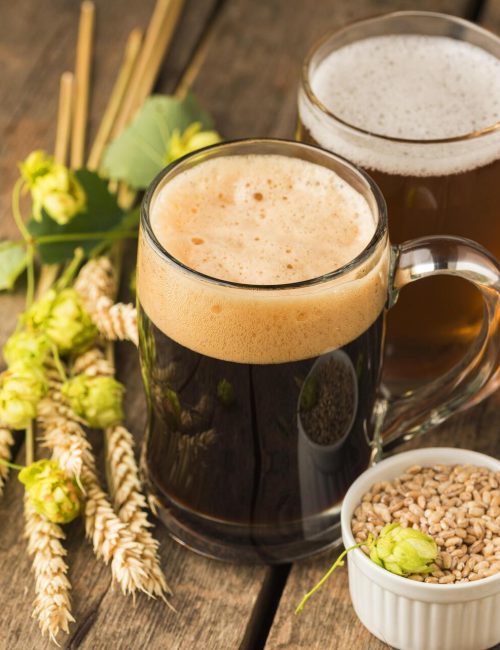Microbiological Beer Analysis Laboratory
Ensure the microbiological quality of your beers with LILANO laboratory
The quality of a beer is strongly linked to its microbiological composition. Undesirable elements can alter the taste, smell, and even the preservation of this highly prized beverage. This is why it is crucial for brewers to work with an experienced and accredited laboratory in the field of microbiological analysis.
The LILANO laboratory is one of these key players offering a complete range of analyses to ensure the organoleptic and microbiological quality of your products.

Added Value
A laboratory close to you
Collection Service
Customer Satisfaction
Result timeframe
Accreditations
Beverage Analysis
The importance of microbiological beer analyses
Microbiological analysis of beer is a crucial step in evaluating the sanitary and microbiological quality of beer. Microbiological analyses detect the presence of unwanted microorganisms that could affect the stability, safety, and sensory quality of the beer.
LILANO needs to understand the issues at hand, and thus communication with the brewery is an integral part of investigating causes. The interpretation of results and contact with the brewer is a strength.
Yeast and Bacteria Testing
- Yeast analysis: identification and quantification of yeasts present in the beer, including yeast strains used during fermentation. Detection of wild yeasts (gushing). Wild yeasts can cause beer to re-ferment and lead to gushing
- Bacteria analysis: detection of bacteria, particularly unwanted bacteria that could cause flavor defects in beer. (Unwanted acidity and off-flavors). Lactic acid bacteria (lactobacillus and pediococcus), anaerobic bacteria (megasphaera and pectinatus), and the hop-resistance gene that can be found in lactic acid bacteria.
Total Flora Measurement
Total flora measurement allows for the evaluation of the total number of microorganisms present in the beer.
Wild Yeast Control
Wild yeast testing enables the detection of unwanted yeasts that could cause undesired bottle refermentation.
Lactic Flora Control
Lactic Flora Analysis leads to the detection of lactic acid bacteria that could influence beer flavor, for example, causing unwanted acidity.
PCR Detection of Diastaticus and Brettanomyces
Non-Saccharomyces yeasts such as diastaticus and Brettanomyces can cause serious organoleptic problems in beer. LILANO uses PCR detection technology to detect these contaminations with high reliability, thus meeting the growing need to control wild ferments to improve the taste quality of the final product.
Microbial Contamination Tests
PCR detection of microbial contaminants consists of searching for microbial contaminants such as unwanted wild yeasts, lactic acid bacteria, and anaerobic bacteria.
Detection of Lactic Bacteria and Other Spoilage Organisms
Some bacteria naturally present during beer production can still cause problems if they reach too high levels (or if they are unexpected). This is the case, for example, with lactic acid bacteria, which can generate unwanted acidity and off-flavors.
The LILANO laboratory thus offers simultaneous PCR detection of 4 families of spoilage organisms (including lactic acid bacteria + hop-resistance genes), allowing real-time monitoring of pathogenic microorganisms responsible for beer spoilage. This method helps combat any potential risks related to their presence in the finished product.
Quality Assurance
Additional analyses to guarantee the quality of your products
Rinse Water Analysis
As water is one of the key ingredients in beer production, it is essential to ensure its quality and safety. LILANO laboratory also supports you in this crucial step by offering specific analyses of wash water to avoid any potential risks related to the contamination of your beers by unwanted elements.
Rinse Water Analysis
To identify sources of contamination, contact analyses (sponges, swabs, etc.), analyses can be performed at all stages of the process (filters, taps, tanks, etc.)



